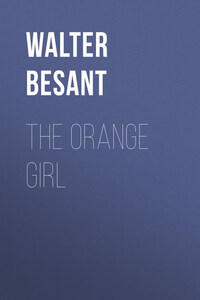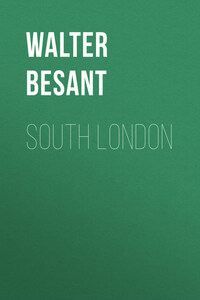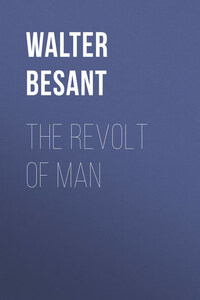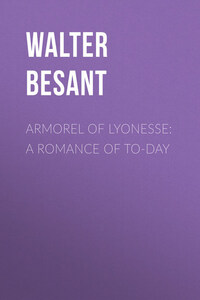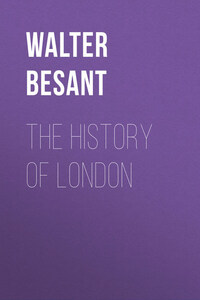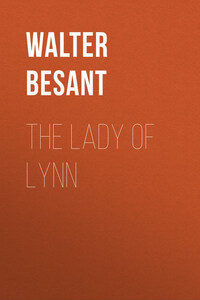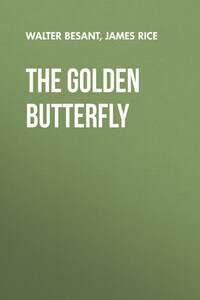PROLOGUE
On a certain afternoon in May, about four or five of the clock, I was standing at the open window of my room in that Palace to which Fortune leads her choicest favourites – the College, or Prison, as some call it, of the King's Bench. I was at the time a prisoner for debt, with very little chance of ever getting out. More fortunate than most of the tenants, I was able to carry on my business. For instance, all that morning I had been engaged in composing a song – it was afterwards sung with great applause at the Dog and Duck; and on the bed reposed the instrument with which I earned the greater part of my daily bread – my faithful violin.
My window was on the ground-floor in the great building which was then new, for the Prison had been transferred from the other side two or three years before. This building contains more than two hundred rooms, and twice that number of prisoners. Many of the ground-floor rooms have been converted into shops – chandlers', grocers', mercers', hosiers'. You may buy anything in these shops, except a good book. I believe that there is no demand in the prison for such an article of commerce. Song-books and jest-books and cards on the other hand, are constantly called for. It was a day of bright sunshine. Outside, on the Grand Parade – otherwise called King Street – which is a broad footway flagged, strolled up and down in the sunshine an endless procession. They paced the pavement from East to West; they turned and paced it again from West to East. Among them were a few neatly attired, but by far the greater number, men and women, were slatternly, untidy, and slipshod. Their walk – nobody was ever seen to walk briskly in the Prison – was the characteristic scuffle easily acquired in this place; the men were mostly in slippers: some were in morning gowns: very few had their heads dressed: some wore old-fashioned wigs, rusty and uncombed: some, the poorer set, were bare-footed, and in such rags and tatters as would not be tolerated in the open streets. The faces of the people as they passed were various. There was the humorous face of the prisoner who takes fortune philosophically: there was the face always resentful: the face resigned: the face vacuous: the face of suffering: the face sodden with drink: the face vicious: the face soured: the face saddened: the face, like the clothes, ragged and ruined: everything but the face happy – that cannot be found in the King's Bench Prison. Children ran about playing and shouting: there were at this time many hundreds of children in the prison. Against the wall – 'tis surely twenty-five feet higher than is needed – the racquet and fives players carried on their games: at the lower end of the Parade some played the game called Bumble Puppy: here and there tables were set where men drank and smoked pipes of tobacco and played cards, though as yet it was only afternoon. The people talked as they went along, but not with animation: now and then one laughed; but the merriment of the College is very near the fount of tears; it hath a sound hysterical. Some conversed eagerly with visitors: by their eagerness you knew that they were newcomers. What did they talk about? The means of release? Yet so few do get out. For the first three or four years of imprisonment, when visitors call, prisoners talk of nothing else. After that time visitors cease to call: and there is no more talk of release. A man in the King's Bench is speedily forgotten. He becomes dead to the world: dead and forgotten. Surely there is no more pitiless and relentless enemy than a creditor. Yet in church every Sunday he asks, and expects, that mercy from his God which he himself refuses to his debtor.
On no other day in the year could the Prison look more cheerful. Yet as I stood at the window there fell upon me such sadness as belongs only to the Prison; it is a longing to be free: a yearning inconceivable for the green fields and the trees. Such moods are common in the Prison. I have seen men turn aside from their friends in the midst of a song, in the height of the revelry, and slink away from the company with drooping head and bowed shoulders. It is indeed difficult not to feel this sadness from time to time. I was young: I had few friends, for a reason that I shall tell you presently. For aught that I could see there was nothing before me but a life-long imprisonment. Nobody, I say, can understand the strength and the misery of this yearning for liberty – for air – that sometimes seizes the prisoner and rends him and will not let him go. Yet I was better off than many, because, though I could in no way pay the money for which I was imprisoned, I was not without the means of a livelihood. I had, as I have said, my fiddle. So long as a man has a fiddle and can play it he need never want. To play the fiddle is the safest of all trades, because the fiddler is always wanted. If a company is drinking they will call for the fiddler to lift up their hearts: if there are girls with them they will call for the fiddler to make them dance: if they would sing they want the fiddler to lead them off: if they are sitting in the coffee-room they call for the fiddler to enliven them. Grave discourse or gay; young people or old: they are always ready to call for the fiddler and to pay him for his trouble. So that by dint of playing every evening, I did very well, and could afford to dine at the two shilling ordinary and to drink every day a glass or two of ale, and to pay my brother-in-law for the maintenance of Alice and the boy.
